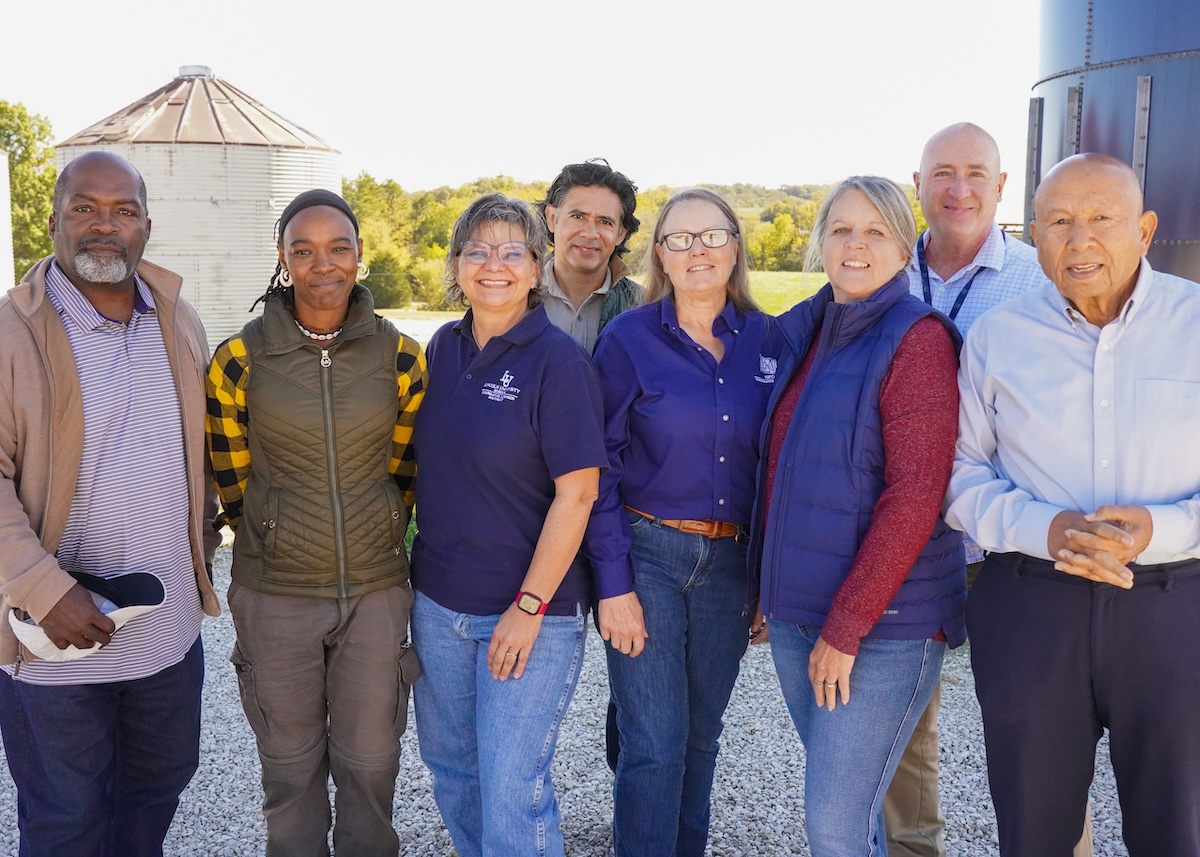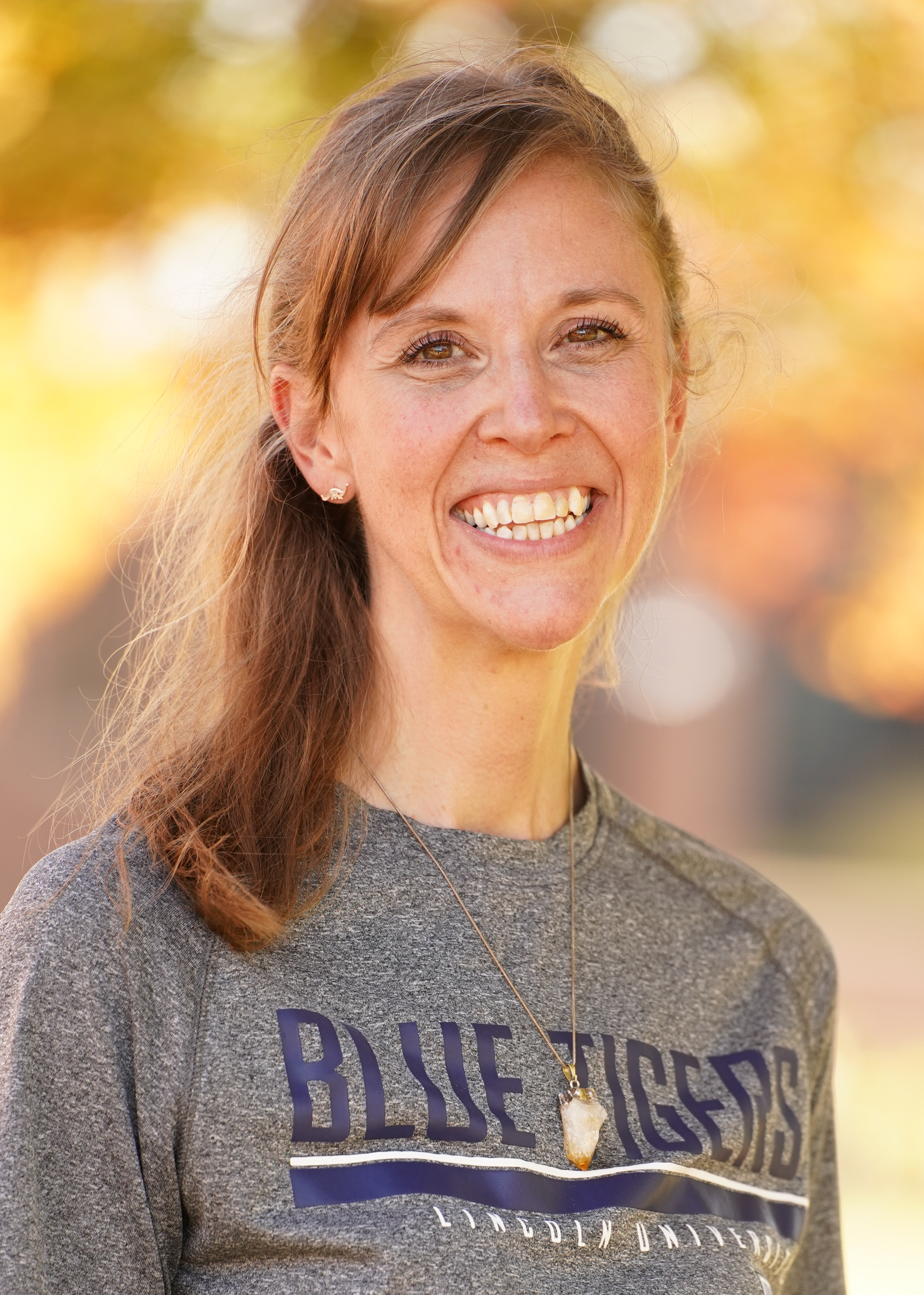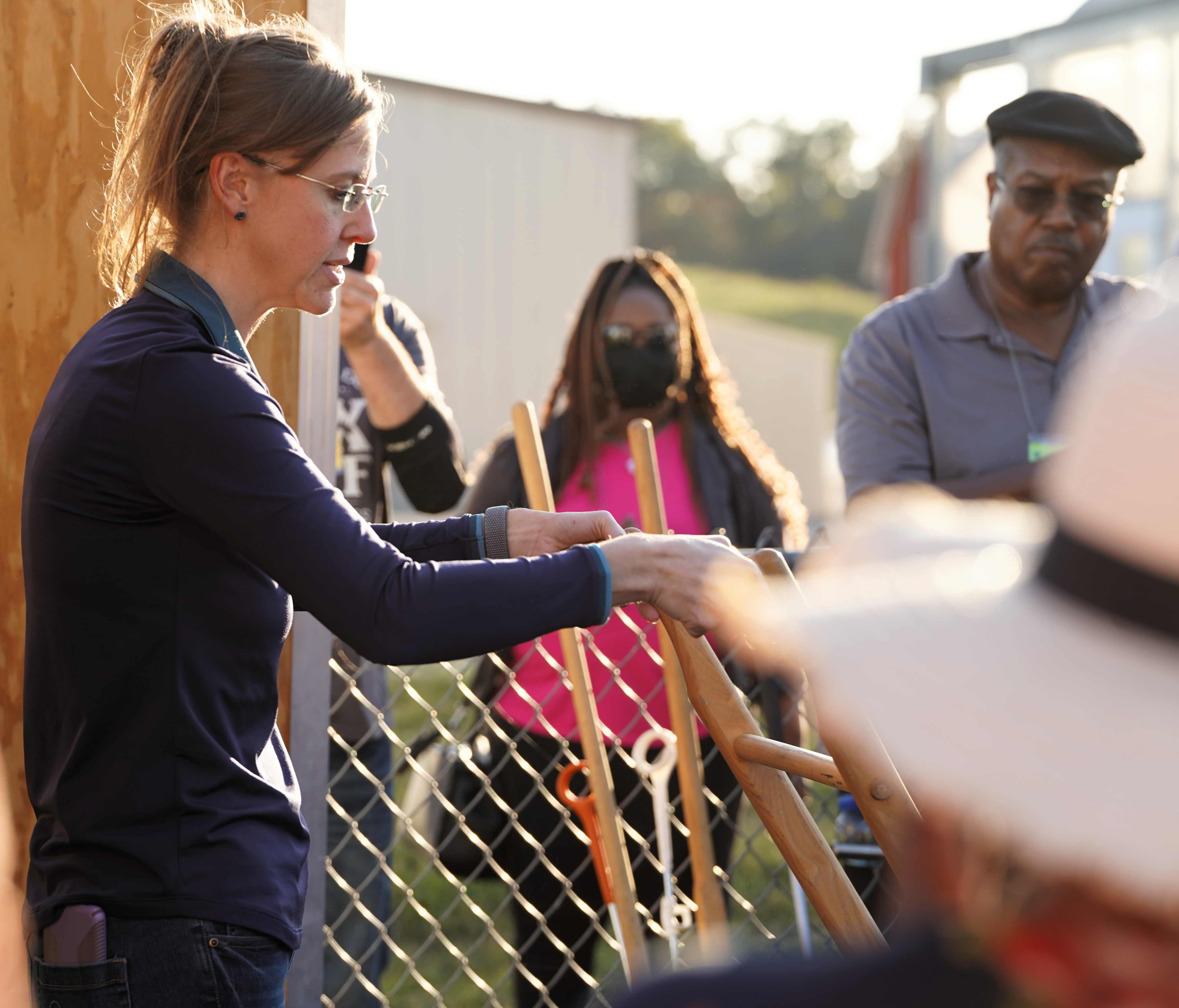Empowering Missouri Farmers: Lincoln University’s Innovative Small Farmers Outreach Program
Office of Communications and Marketing
Young Hall
820 Chestnut Street
Jefferson City, MO 65101
 Members of the Innovative Small Farmers’ Outreach Program (ISFOP) gather for a group photo at Lincoln University’s Carver Farm, celebrating their ongoing efforts to support and empower small-scale farmers across Missouri.
Members of the Innovative Small Farmers’ Outreach Program (ISFOP) gather for a group photo at Lincoln University’s Carver Farm, celebrating their ongoing efforts to support and empower small-scale farmers across Missouri.
“If we can show a farmer how to grow their skills and confidence, that’s when real empowerment happens,” says Mary Keeter of the Innovative Small Farmers Outreach Program (ISFOP) at Lincoln University Cooperative Extension (LUCE).
This philosophy is at the core of ISFOP’s mission to improve the lives of small-scale farmers in Missouri. By providing hands-on training, essential resources and access to financial opportunities, ISFOP equips farmers with the knowledge and support they need to strengthen their farms and adopt practices that drive long-term growth.
“I try to do hands-on workshops as much as possible," Keeter says. "People can listen to my explanations, but they’re more likely to remember and apply the skills once they’ve done it themselves. I can talk about electric fencing for hours, but until you’re out there, feeling the weight and setting it up, it doesn’t fully register.”
ISFOP provides a variety of workshops, including low tunnel construction, cultivation techniques, livestock fencing and drip irrigation systems. These sessions also include topics such as soil health, crop yields and livestock management. Additionally, ISFOP offers comprehensive grant-writing workshops to help farmers secure funding for farm improvements.
 Mary Keeter pauses for a photo on the Lincoln University campus while visiting for a workshop on training farmers.
Mary Keeter pauses for a photo on the Lincoln University campus while visiting for a workshop on training farmers.
Recently, Keeter helped a small farmer protect crops from sudden temperature drops. Keeter brought hoop benders and materials to help her construct low tunnels for the first time. By the end of the session, the farmer had successfully built the tunnels, saved her crops and extended her growing season — preserving a significant portion of her income.
If farmers can’t make it to a workshop, ISFOP meets them where they are — right on the farm.
“Sometimes it’s not just about teaching skills but providing the resources farmers don’t have access to,” Keeter says. “Farmers don’t always have the equipment to try new methods. I bring the tools with me, so they can learn hands-on without needing to purchase everything upfront.”
Keeter says this approach gives farmers the confidence to explore new practices and decide what works best for their operation.
ISFOP also collaborates with researchers and specialists from LU’s College of Agriculture, Environmental and Human Sciences to explore and share new agricultural methods. One key partnership with LUCE’s Poultry Program equips farmers with essential skills in poultry management and production.
“Being part of Cooperative Extension allows us to find the best solutions for farmers,” Keeter adds. “I’ve taken some of these ideas back to my own farm and then shared them with others.”
 Mary Keeter travels to workshops to teach tool use and let participants test equipment before making a purchase.
Mary Keeter travels to workshops to teach tool use and let participants test equipment before making a purchase.
Keeter’s role as a regional outreach worker places her directly within the farming community she serves. By living and farming in the same area, Keeter faces the same challenges as the local farmers, including unpredictable weather and varying soil conditions. This shared experience fosters a sense of trust and understanding, allowing her to connect with farmers and provide support that is both practical and relevant.
“Each ISFOP farm outreach worker is embedded in their community across different regions in the state,” Keeter says. “Farmers know we’re in it with them, dealing with the same issues they are.”
ISFOP’s mission goes far beyond offering technical assistance — it’s about fostering long-term resilience and sustainability for small-scale farmers across Missouri. By inserting farm outreach workers like Mary Keeter directly within their communities, ISFOP provides localized support tailored to the unique challenges of each region. Through hands-on training, access to critical resources and collaboration with experts, ISFOP empowers farmers to strengthen their operations and adopt sustainable practices.
“If I empower a farmer, that energy spreads throughout the community,” Keeter says. “Once someone feels confident and empowered, they can share that with others, creating a ripple effect of positive change.”
